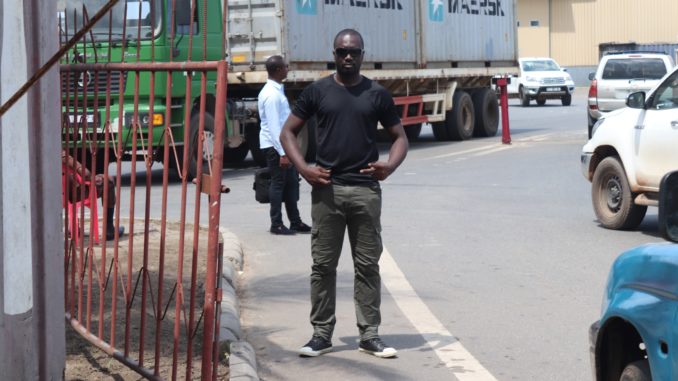
I arrived the Ebibyin Central Garage from where I would pick a Bata bound vehicle. Bata is the largest city on the Equatorial Guinea mainland. Santos, one of the police officers who helped me secure my freedom the previous day had earlier advised me that on my way to Bata, I would have to pay a few bribe on my way. I did not understand this properly until it was time to go.
Ideally, the distance between these two towns is around 177 Kilometers and would be done in 3 hours 30 minutes if there were no stops. The normal fare for this trip should cost between 3000 CFA to 5000 CFA depending on what type of vehicle and the time of the day one is traveling. I was mortified with horror when I was told the amount I was going to pay for this short trip. I was requested to pay 35000 CFA for this trip. When I sought for justification, I was told that as a foreigner, I would be required to pay a sum of 2000 CFA bribe at each of the security checkpoints we will meet traveling from Ebibiyin to Bata. This fee is just for foreigners who are do not live in Equatorial Guinea. If you are a resident, you are exempted from paying. This whole idea sounded crazy to me but I think I understood the idea behind this was to discourage foreigners from traveling on land – the government would probably be thinking these foreigners would want to play a part in destabilizing their dictatorship called a government.
When I realized I could not bargain much, I had to give in to this. I was able to find a cheaper bus for a sum of 25000 CFA (around $50 USD) for this journey. We left for Bata around six o’clock that evening. We passed a total of ten different stops with armed police officers who would stop and search the vehicle and also take a look at the identity cards and passports of all the passengers onboard the vehicle. The driver had to pay the police at each of the points where we stopped till we arrived Bata very late in the evening. A total of ten stops.
I think there was a point where the police did not bother to collect money from the driver. So, I would advise that if you ever want to travel on this route, always negotiate with the driver so that you would pay the police yourself. You may be fortunate to meet a good police officer who would allow you to move on without taking anything from you.
We arrived Bata almost at 11pm. I neither made any hotel reservations nor had anywhere to stay. Luckily, a lady in the bus with me had an idea of a guest house where I could pay 5000 CFA for a night. Her name is Olorin, a Cameroonian. She lives in Bata and she was just coming back from Cameroon where she had gone to renew her visa for Equatorial Guinea. She lived in Bata and being from the English speaking part of Cameroon, it was no difficulty communicating and learning a lot about what life is for visitors and immigrants in Equatorial Guinea. First, the country which once was prosperous was battling with recession due to fall in oil prices. According to her, things were moving slowly as it was a few years ago.
One other thing she told me was that I must always move around town with a valid means of identification – in my case, my international passport. She told me police would frequently bump into a group of persons having a conversation and would demand a valid identity card from each person. I found this to be too tasking, though I would not be staying too long, I wondered how the citizens and other nationals who live there would be coping with this arrangement.
She also complained of the high cost of rent in the city but that was ok for me. One would expect that of a very small country that has the highest GDP in Africa. She took me to a guest house close by to the one-bedroom apartment she lived. I passed the evening and left the next morning to visit Bata township and the first port of call was to the airport. I was considering the possibility of visiting Malabo Island from there and then flying from there to Libreville. Ticket prices for this routes were very outrageous. Even though at the end of the trip, I really wished I went this route but I am happy everything went the way it did so I would have this story to tell.
There were two different airlines that flew from the Bata Airport to Santa Isabel Airport at Malabo. Their national carrier also known as CEIBA and one other airline cannot remember at the moment. Funny enough, I ran into other things that used the CEIBA trademark for as well. They CEIBA trademark is used for bottled water. I really wondered what an airline and a water bottling company would share the same name.
At the CEIBA stand at the airport, I was informed the flight for the day to Malabo had already left since seven o’clock and that any meaningful enquiry could be made at their office in town. I was also informed I would have the option of travelling to Malabo by boat but that would take several hours – I read 13 hours somewhere and that the trip has to be at night. To fulfill all righteousness, I had to visit the CEIBA office in town because I had already decided I was not flying to the place again. Something funny happened when I got to the CEIBA office. I noticed a very dirtily dressed mad woman standing in front of the office shouting and ranting in the local language and some reasonably good Spanish ascents. She screamed for almost two minutes before she decided to leave. Some people there told me she could be violent at times. I wondered why she was left there, being that she was sick and needed help.
Bata, like most cities has the areas that are exclusively reserved for the rich and that for the rest of us. Very close to the airport was the beach and military barracks. I was able to find a local restaurant where they sold rice and stew and other local food. Also there I met one gentleman named Nicolas who was having his breakfast. We got talking and he was super impressed when he got to know I visited from Nigeria, this is because he has been to Port Harcourt in Nigeria.
One of my goals before I left the shores of Nigeria to Equatorial Guinea was to meet the Bioko people whom several people assumed they were of Igbo decent, the same tribe as myself. Unfortunately, I was told they have settlements in Malabo and with the outcome from visiting the airport that morning, I could not embark on the journey anymore. History also confirmed that several people from Arochukwu came to settle in present day Malabo and still live there up till this day.
Nicolas had once travelled to Nigeria and he has also lived in Ghana. He spoke English reasonably well. He told me about the so called Bioko Igbo tribe. According to him, those were the descendants of Igbo people who lived on the Malabo Island. According to him, several of those Igbo remnants were abandoned by their parents during a time there was wars and difficult time to run back to Nigeria. He told me some of them still bear near Igbo names and that they speak a version of adulterated Spanish with lots of pidgin English. But unfortunately, I could not meet any of these Igbo tribes since I did not travel to Malabo.
Leaving Nicholas, I went to see a few places in town and was tempted to travel to Gabon by road from Bata via the Cocobeach/Kogo border. I had earlier read some very nasty experiences of some travelers at that border. I even called Lino, a friend police officer to ask for his opinion on taking that route and he advised me to come back to Ebibyin and then travel from there to the next destination. There was another option of going through the Oyem/Mongomo border. In fact, this remains one of the best routes based on a few things I read online from other travelers and conversations I had with locals. From experience, if someone is headed to Gabon from Equatorial Guinea, it is better and easier to use this route.
One other challenge I had leaving Bata was finding an ATM machine that accepted the Visa card I had with me. I tried several local banks and even the National Bank of Equatorial Guinea (BANGE) and Ecobank which normally I thought would have worked due to their presence all over Africa. It was such an interesting thing that my bank card could not work in all those places. Ebibiyin, Bata, Ambam, Kiossi, Bitam in Gabon and so on. I was able to use the card eventually at Douala two days later.
I was Ebibiyin bound around three o’clock that afternoon. This time around, I negotiated with the driver that I was going to make payments myself each time we stop at the police checkpoint. Sitting close to me in the front seat of the vehicle was a man who claimed he is a policeman and the driver even acknowledged him as one. He boasted to me he could ensure that I do not have problems with police till we get to Ebibiyin. I however doubted him because the way he spoke sounded like someone who was drunk and he was also smelling same – I tried to have conversations with him but he often got distracted.
I paid for a first three police posts we passed. On getting to the fourth, he asked me to give him the money that he would want to pay for me. I could not have given him but he gave me an impression he would return the money if they did not collect it. He was cleared before me and he left to a little market. The money was not collected and before I could cross to get to where he was, he had already used the money to buy a can of Saint Miguel’s Beer and roasted chicken laps with oil. He never said a word about my money. Understanding what he did, I was very angry with him and decided to avoid him for the rest of the trip.
Somehow at the next stop, luck ran out of him. He had gone to the group of police officers standing there to greet them and possibly demonstrate to me that has a level of influence in the ranks of Equatorial Guinea. Unfortunately, one of the police officers lost it with him and gave him a terrible beating. The beating lasted for almost two minutes that it took the intervention of our driver and some passengers to have the police officer stop hitting and kicking him. Karma they said is a bitch and I was happy it caught up with him that fast. He spent my 2000 CFA and think he would go free. Good a thing, the police at that point did not take any money from me. They allowed me go free. For the rest of the journey my friend kept quiet and never boasted again – I felt sorry for him and wish that next time, he doesn’t exploit people the way he did to me. I also remember we passed a newly constructed road which they said lead to the new capital called – Ciudad de la Paz in Spanish which translates to The City of Peace. The local name is Oyala which is the administrative headquarters of Djibloho.
We had different stops at different bus stops for the different passengers. We also picked up some passengers along the road. We occasionally stopped at different points where bush rats were displayed for sale for the passengers and the driver to purchase. I really wanted to get to Ebibiyin on time so I could cross the border back to Cameroon and then head to Gabon but unfortunately, we arrived around seven o’clock in the evening while the border was closed at six that evening. I was directed to hotel called Hausa Hotel where I slept for 5000 CFA before I continued my trip the next morning to Cameroon.
The next morning, I left the hotel in good time and headed to the Ebibiyin border. I now had time to observe the border town and the countryside since that on the first day I plied the route, I was under arrest and was not settled to observe nature and the beauty of the community to appreciate it. There is remarkably, this beautiful cemetery that was just besides the road. There were other clean buildings and roads just before the spot where a taxi I had boarded from my hotel dropped me off. Walking down now to the border post, I was interrupted by a few policemen and touts blocking the road. They demanded I pay 1000 CFA before I could cross. After several arguments and delays, they let me go. The next police check was not going to be that easy. Those ones proved to be more difficult and even asked me to go back to Equatorial Guinea if I could not pay. I stood for some five minutes and they asked me to leave the post.
I had to go back and then think of the next thing to do to cross that point. While thinking, a well-dressed priest drove past me and stopped in a shop 400 meters ahead of me. I thought I could meet him and explain my plight to him and get him to talk to the police to allow me passage and I did that. After I introduced myself, he took in his vehicle and he drove back to same spot where they refused me passage. He went to the police officers and explained to them that I was a stranger and I had issues making withdrawals and that I need to go. It was then he now reluctantly allowed me go. It was so bad of me to have forgotten to ask the priest for a selfie.
When I was walking down, the next car that passed was that of the police chief who had approved my release from the jail the previous day. He was even the person that noticed me and stopped. He greeted me and asked me to enter the vehicle and go with him to the border in Spanish. I still can’t understand whatever he told me. That was how I was saved from other hawks (police officers and other uniformed officials) at the border before I was finally stamped out of the country. Leaving Equatorial Guinea made me feel so good. My excitement was cut short by the challenge of not having enough money on me and the fact that most ATM machines I attempted make withdrawals from were not accepting my card.

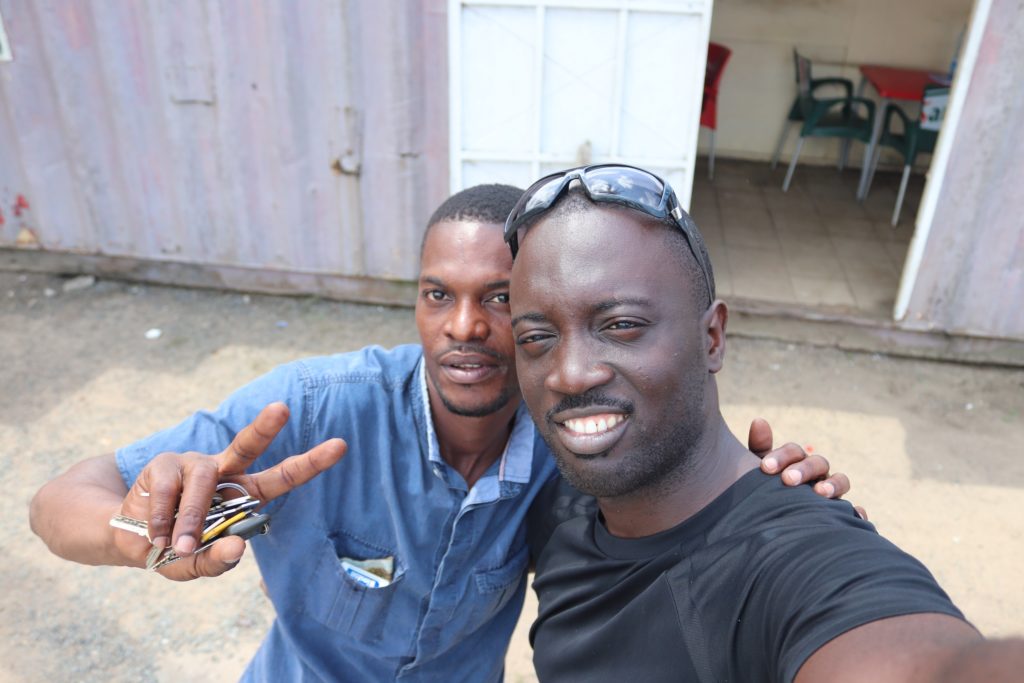
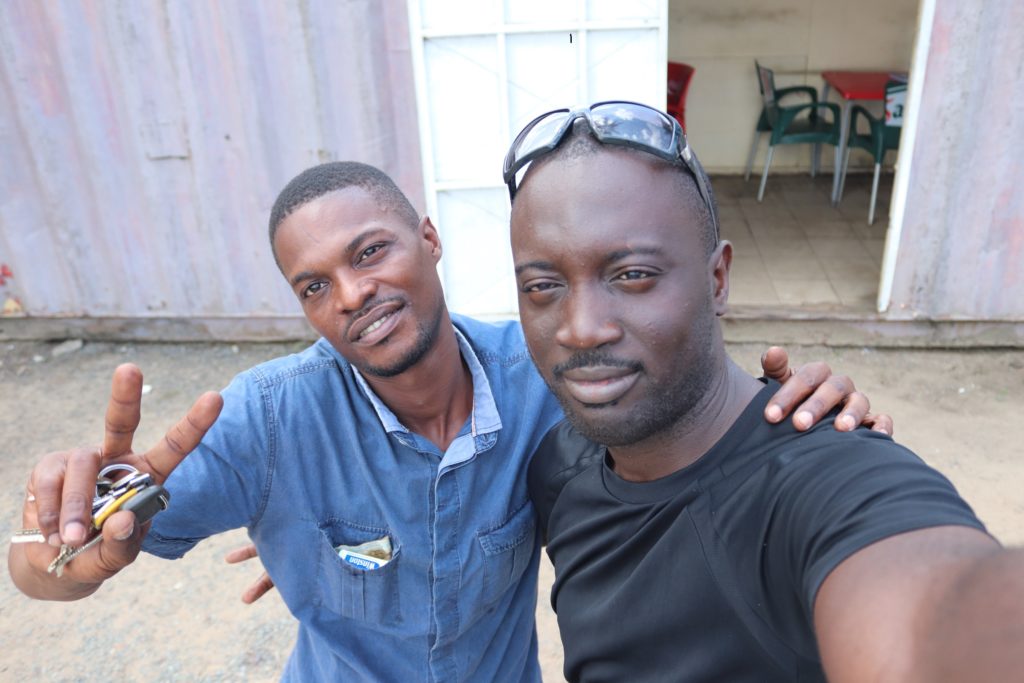
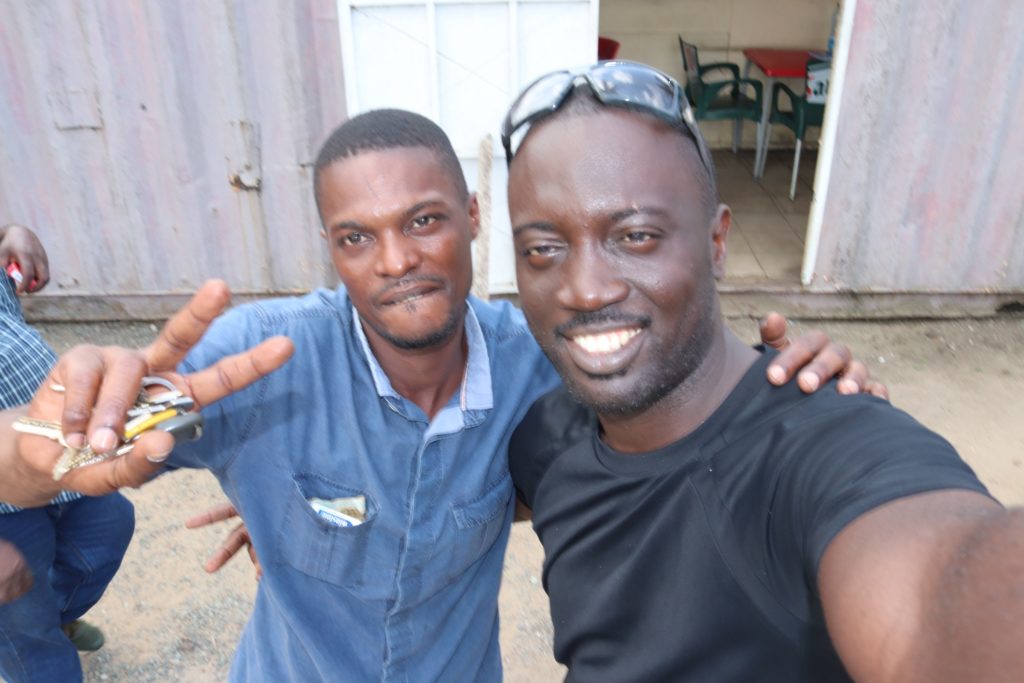
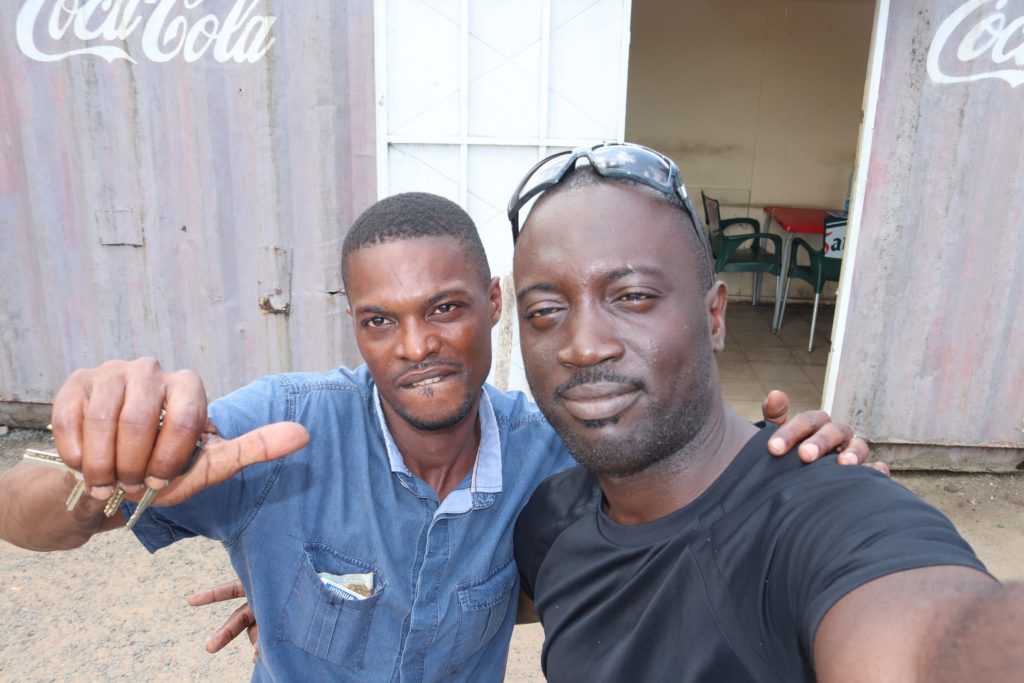
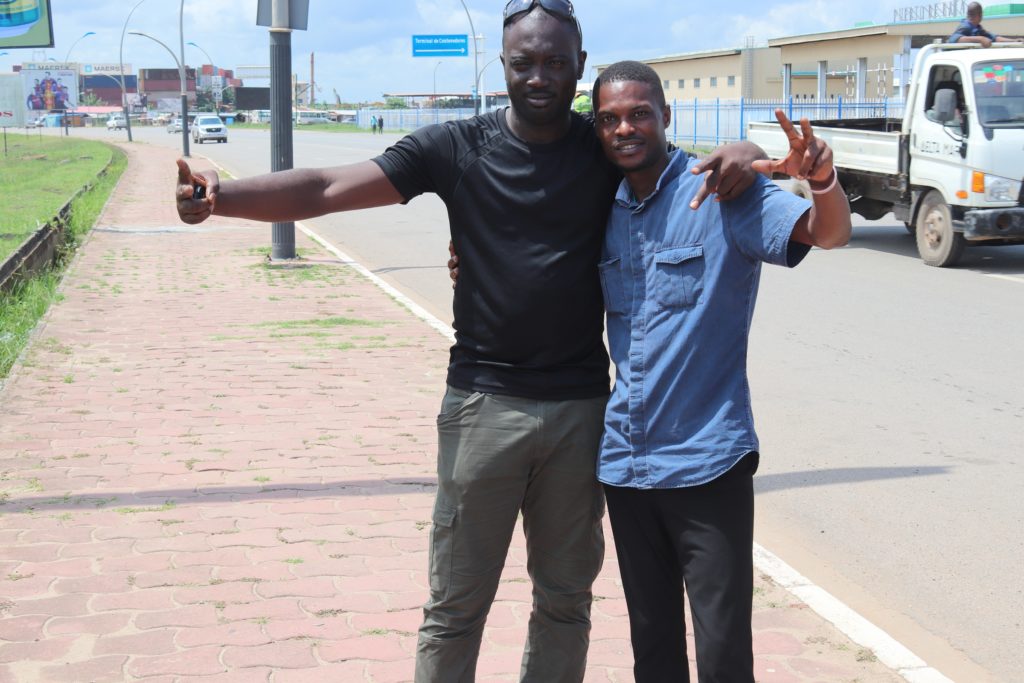
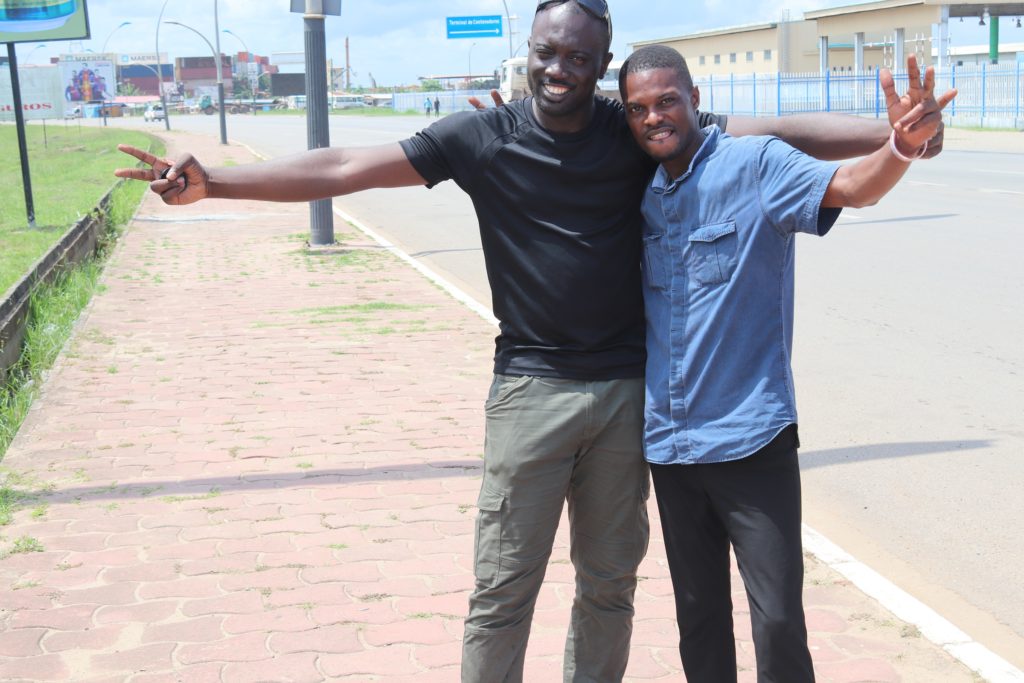
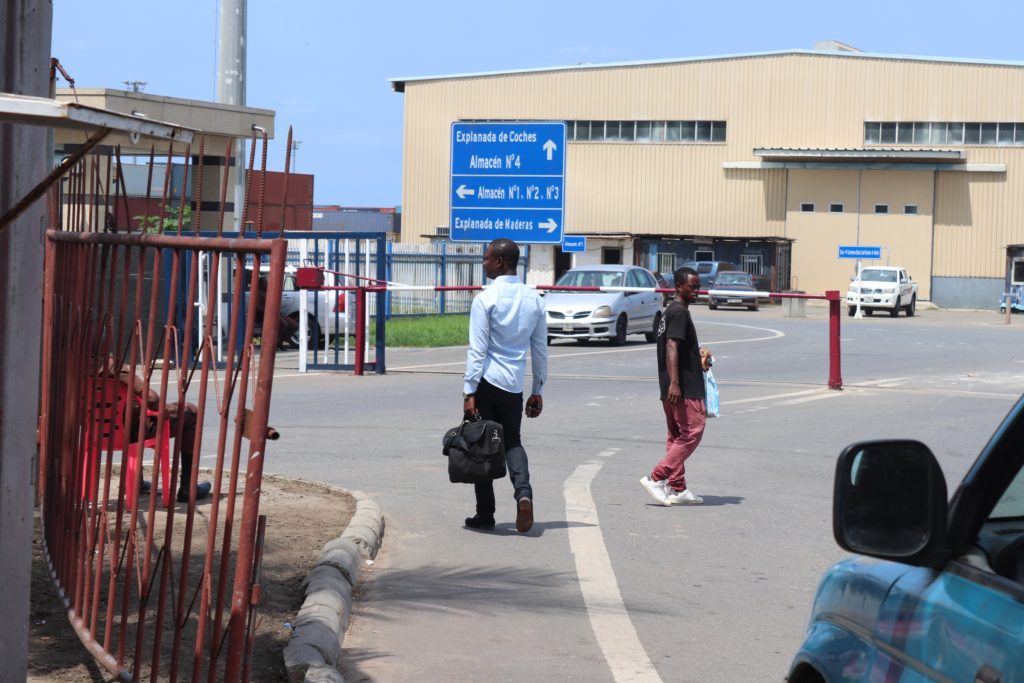
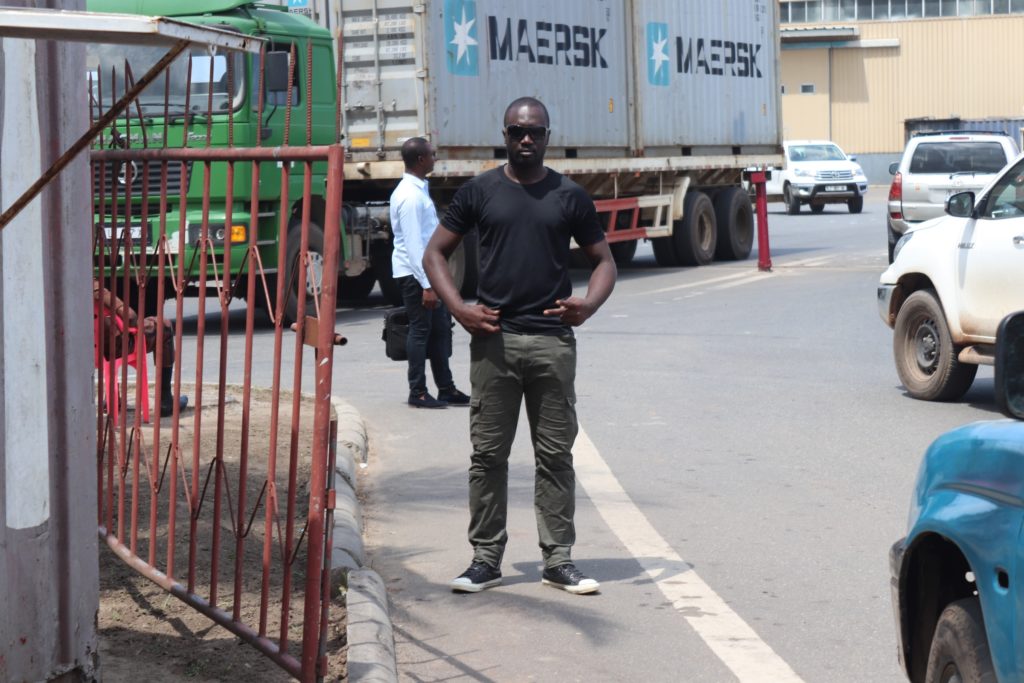
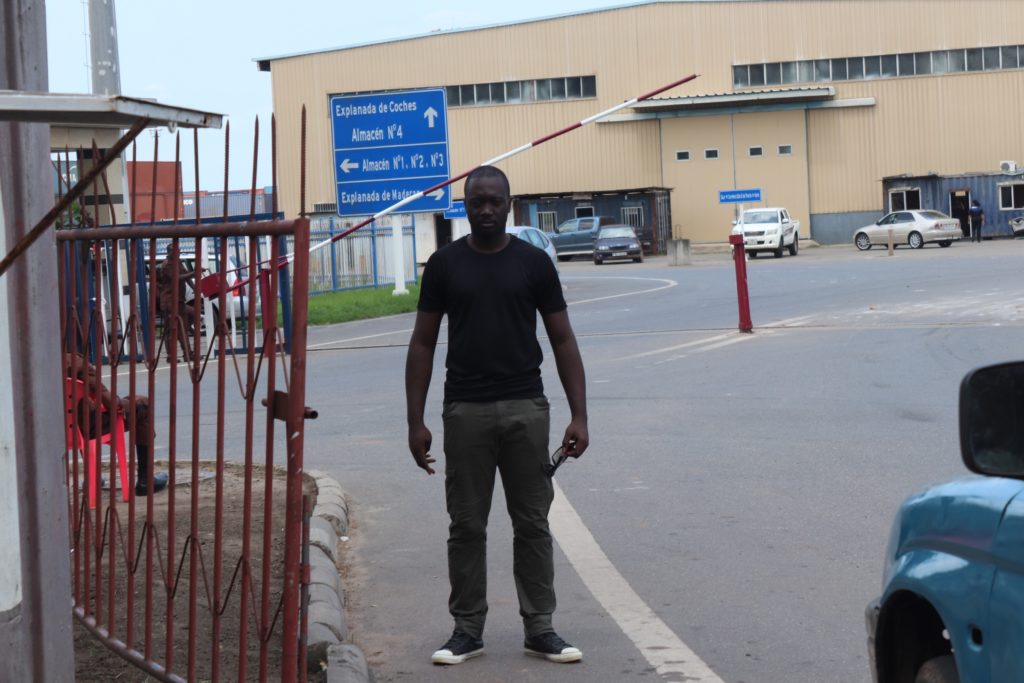
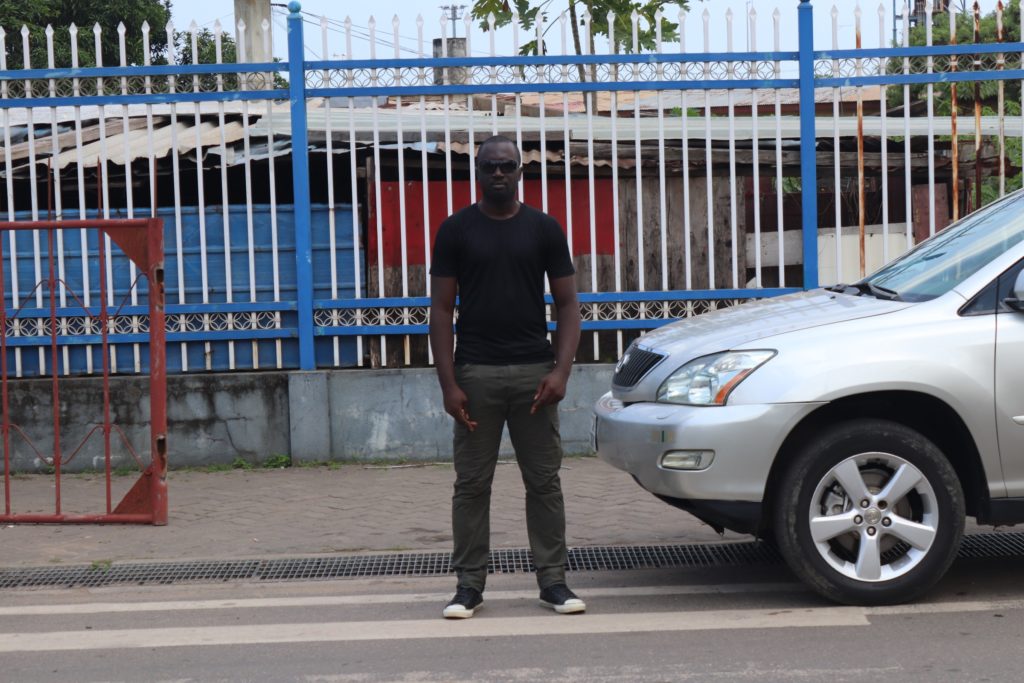
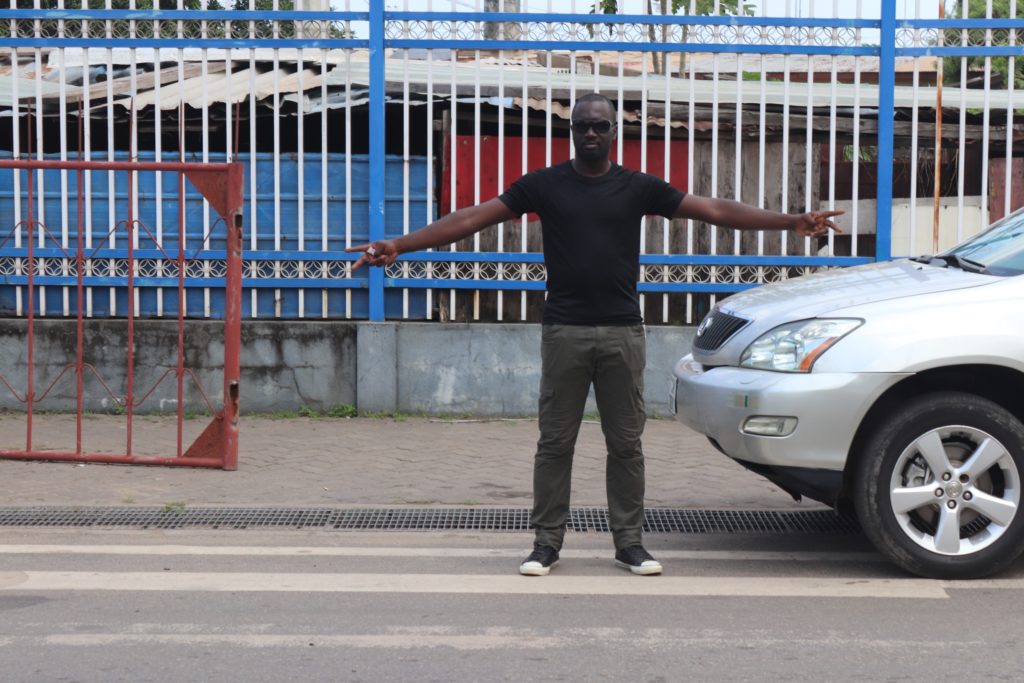
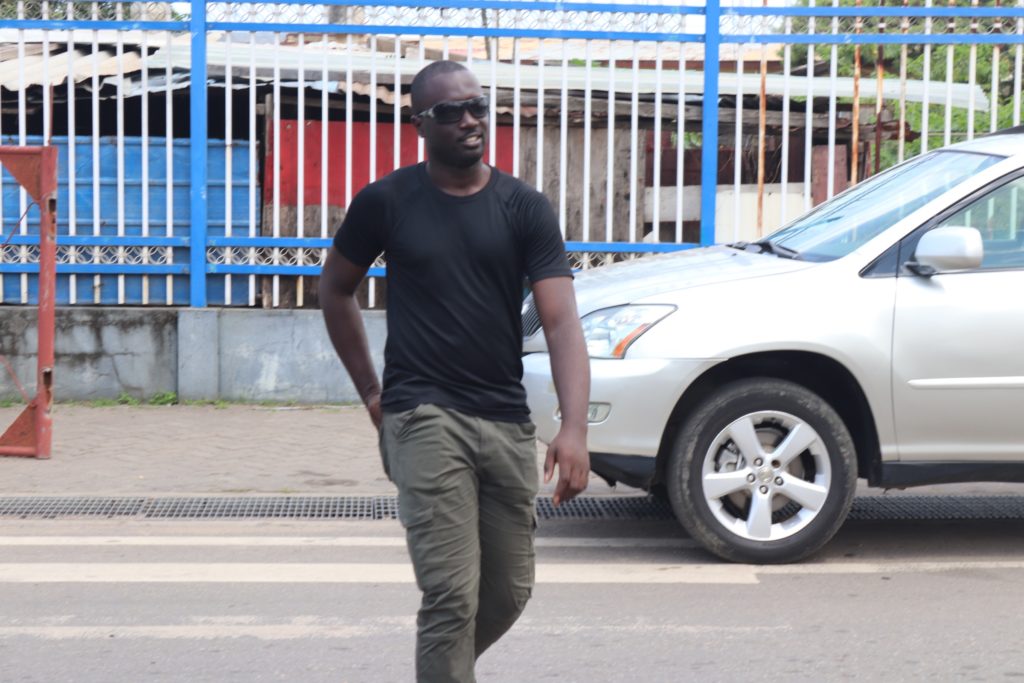
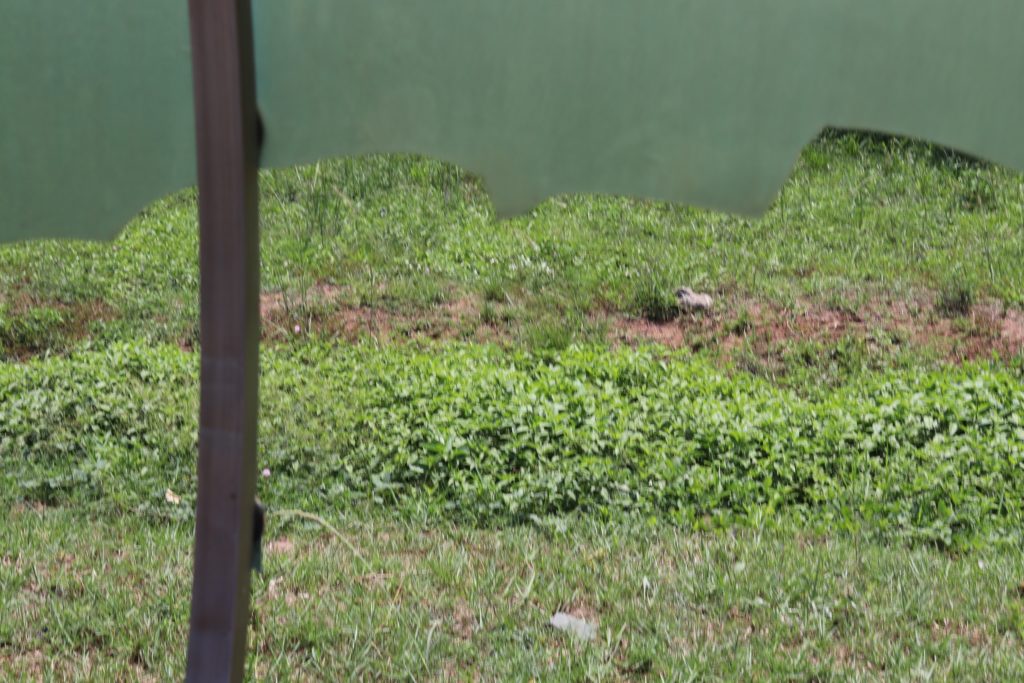
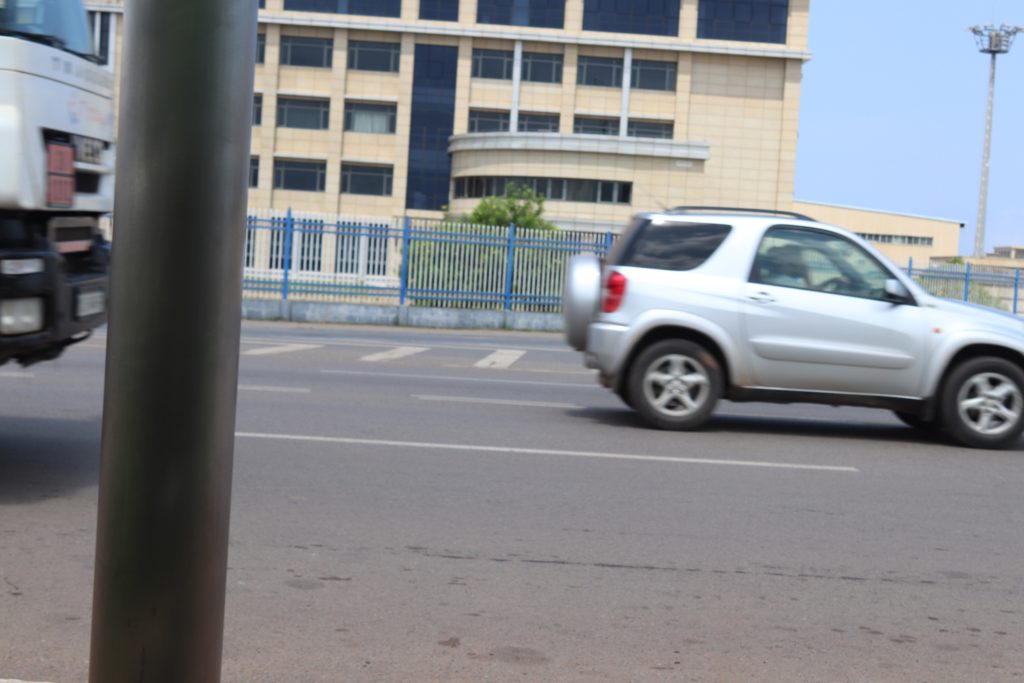
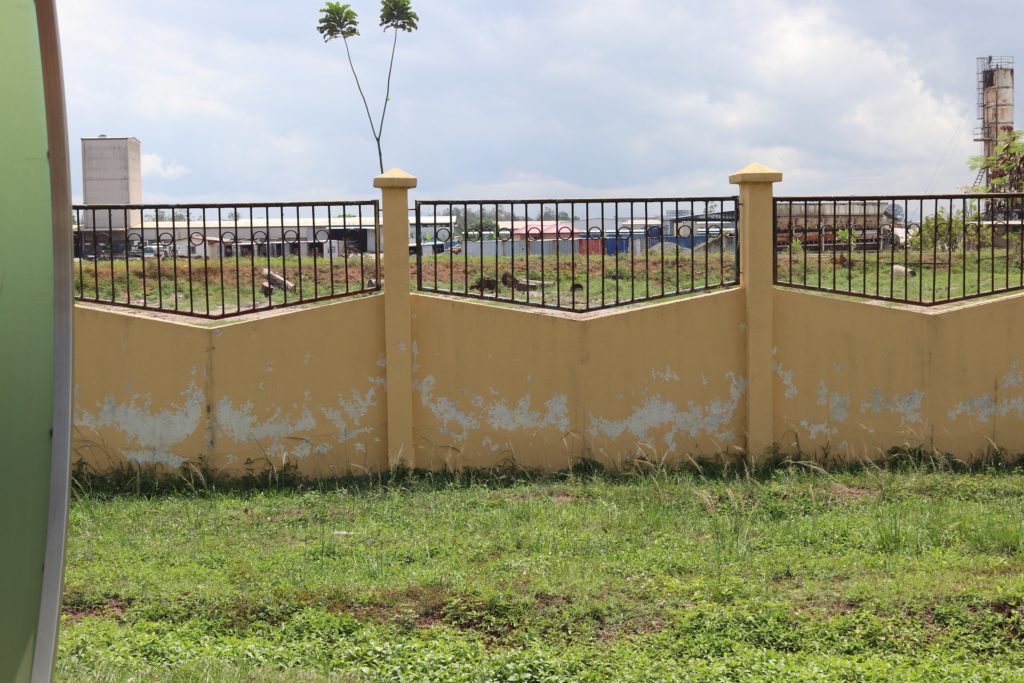
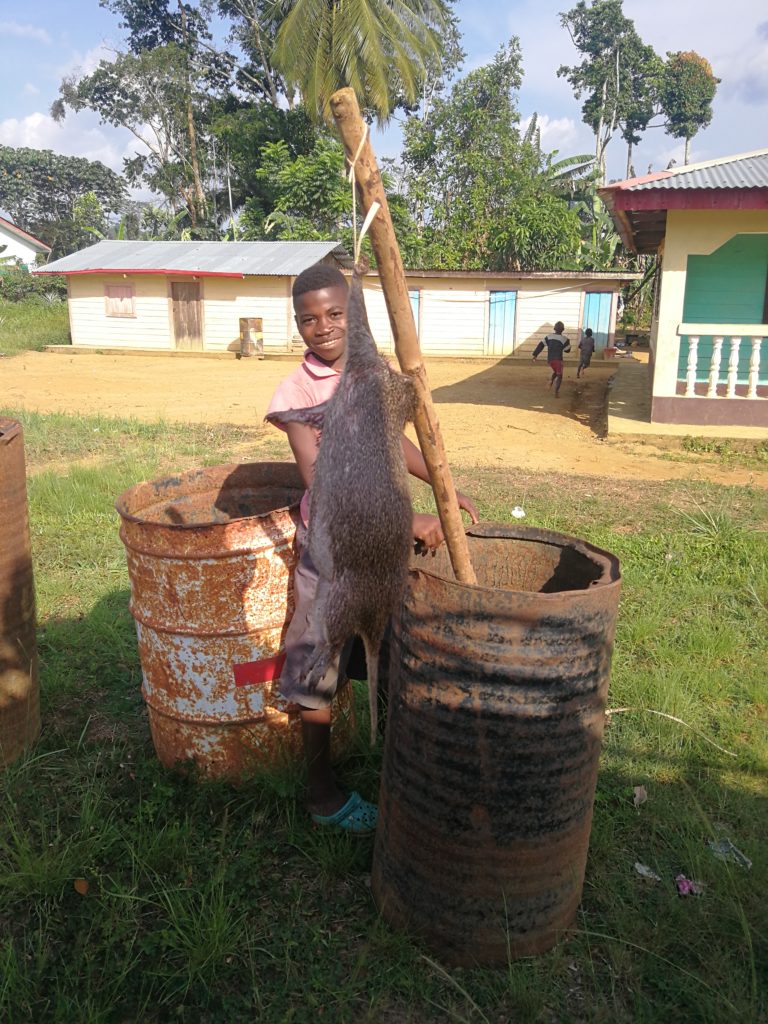
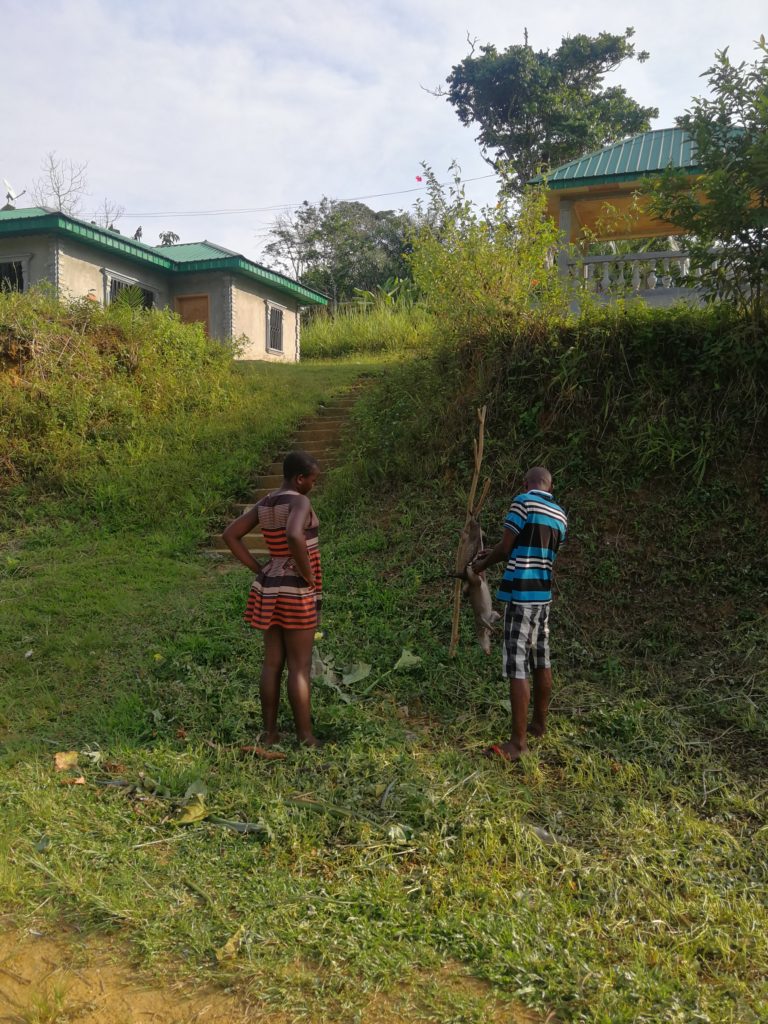
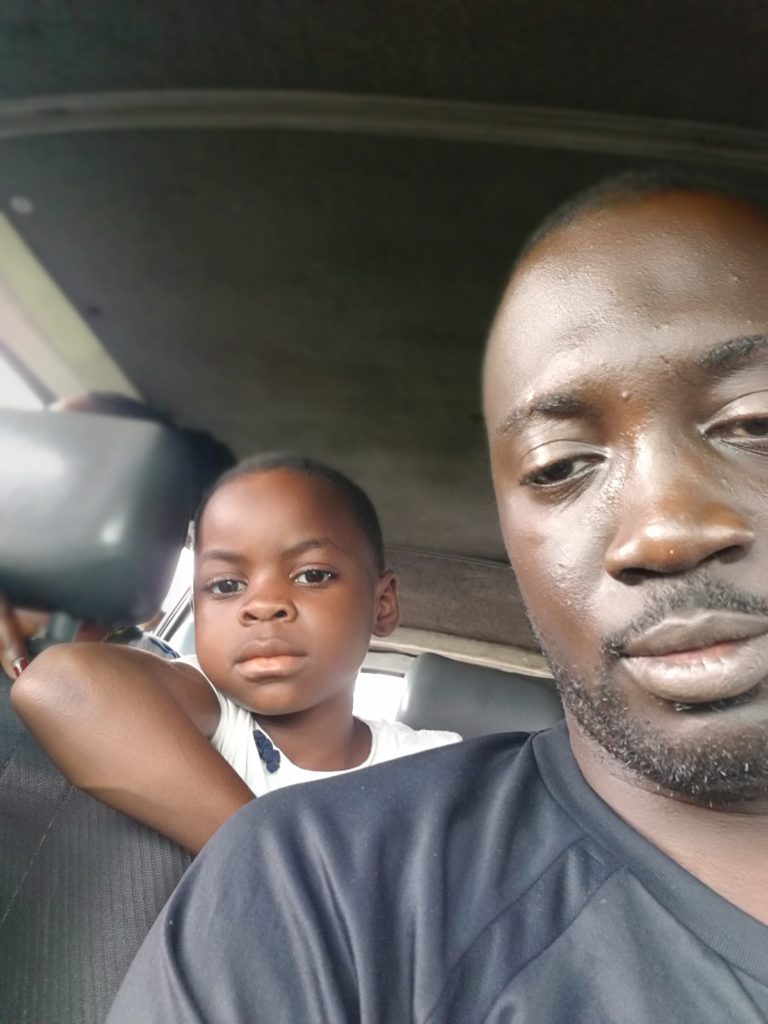
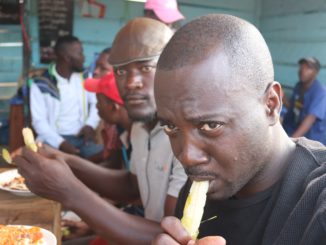
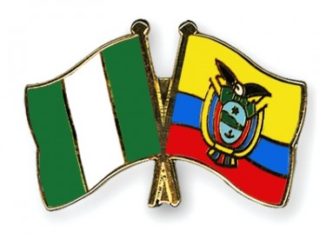
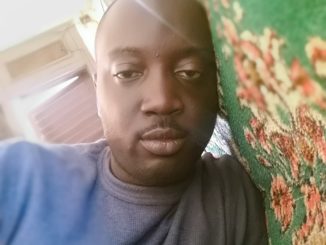
Wow…. Awesome, God himself stood by you on that trip, right from the first place where that man tried to take advantage of you till the end. God is good…
Thanks Easy. God has been my strength.